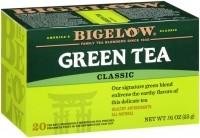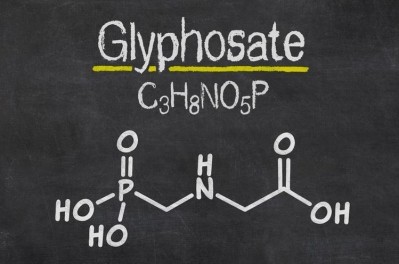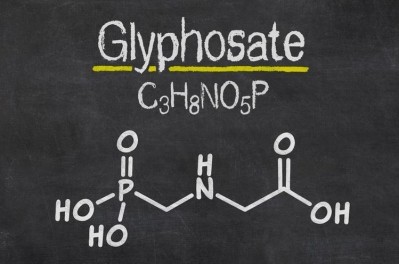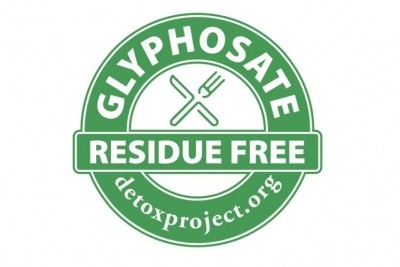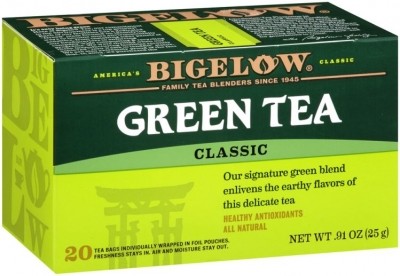And now the food lawsuits… General Mills sued over glyphosate residue post Monsanto $289m verdict

To date, most lawsuits over glyphosate residues in packaged foods have not attempted to argue that foods containing trace levels of glyphosate are inherently unsafe, but have instead argued (largely unsuccessfully) that consumers would not expect to find the herbicide in products marketed as ‘all natural.’
However, in a new putative class action lawsuit* filed vs General Mills in Florida six days after the verdict in the Dewayne Johnson vs Monsanto trial, plaintiff Mounira Doss argued that General Mills had a duty to disclose the presence of glyphosate in Cheerios cereal products, but failed to do so.
At 470-530 parts per billion (ppb), the levels of glyphosate Doss alleges were in Cheerios products tested by the Environmental Working Group in August 2018 are well below permitted EPA thresholds for glyphosate in grains (set at 30ppm or 30,000 ppb in grains, cereal group 15).
However, Doss argues that “Scientific evidence shows that even ultra-low levels of glyphosate may be harmful to human health,” and notes that glyphosate recently joined the Prop 65 list of chemicals 'known to cause cancer or birth defects or other reproductive harm'**, and was found by the International Agency for Research on Cancer (IARC) to be “probably carcinogenic to humans.”
General Mills, she argued, “failed to disclose or actively concealed information reasonable consumers need to know before purchasing” Cheerios, and “knew or should have known that Cheerios and Honey Nut Cheerios contained glyphosate but withheld this information from consumers and the general public.”
As a result, General Mills has violated several state consumer protection laws, she claimed: “The Florida Class was deceived by Defendant’s omission into believing that Cheerios and Honey Nut Cheerios are safe or free of glyphosate… Defendant made material statements about the safety of Cheerios that were wither false or misleading.”
General Mills: ‘Our products are safe and without question they meet regulatory safety levels’
General Mills spokesman Mike Siemienas told FoodNavigator-USA that, “As standing practice, we don’t comment on pending litigation.”
But he added: “In reference to the Environmental Working Group’s [August 15] report [on glyphosate residues in oat-based packaged food products], our products are safe and without question they meet regulatory safety levels. The EPA has researched this issue and has set rules that we follow as do farmers who grow crops including wheat and oats. We continue to work closely with farmers, our suppliers and conservation organizations to minimize the use of pesticides on the crops and ingredients we use in our foods.”
"Deception by omission ('failure to disclose material information,' as pled in the complaint) is a hard thing to prove, and usually requires proof of intent to deceive or knowledge that people will rely on the claim.
"Because of the EPA levels, it’s quite likely that General Mills will respond with the usual knee-jerk defenses of primary jurisdiction and preemption. In this instance, I don’t think either doctrine really applies, but I’ve seen courts go our of their way to find primary jurisdiction where it doesn’t actually exist..."
Steve Gardner, legal consultant at Gardner Consulting (formerly head of the food law practice at the Stanley Law Group; Director of Litigation for the Center for Science in the Public Interest)
"In the wake of the $289m Monsanto damages award, we expect to see plaintiffs’ attorneys target products containing glyphosate, even in trace amounts.
"One challenge plaintiffs will face is to demonstrate that consumers do not expect even trace amounts of pesticides to appear in their food. As well, the plaintiffs’ bar will likely devote more resources to establish the minimal level of exposure to glyphosate that is capable of causing harm.
"Some courts thus far have recognized that 'the overwhelming majority of agencies that that have examined glyphosate have determined it is not a cancer risk.' Nat'l Ass'n of Wheat Growers v. Zeise, No. 2:17-2401 WBS EFB, 2018 U.S. Dist. LEXIS 98690, at *7 (E.D. Cal. June 12, 2018)."
Squire Patton Boggs Food & Beverage Industry Litigation Group
Will we see a tidal wave of glyphosate lawsuits?
So what do attorneys make of the case? Should food manufacturers be worried – given the ubiquity of the herbicide – that this is just the first of a wave of lawsuits, or is this case a stretch given that the levels allegedly found in Cheerios and other products are microscopic compared with the levels to which Dewayne Johnson – a former groundskeeper – was allegedly exposed?
Anthony J Anscombe, partner at law firm Steptoe & Johnson told FoodNavigator-USA: “I certainly expect to see more of this kind of filing. Obviously, from a scientific perspective, nothing has changed – the science behind cancer risks is very weak, and the Johnson verdict doesn’t prove otherwise. But the Johnson verdict did get big headlines. Some among the Plaintiff class action bar will see a chance to capitalize on that. They may figure that the Johnson verdict puts some additional commercial pressure on food manufacturers that a class action, by itself, might not.
"More of the public has now heard about glyphosate, and groups like EWG will do their best to keep it in the public eye. But these tactics are not new, and in fact, there has already been a fair amount of litigation about glyphosate in foods."
'Cases of this variety should have a dim future'

He added: "Cases of this variety should have a dim future. There is no meaningful risk of physical harm to consumers from these exposures, and I would expect defendants to have a host of arguments as to why they have no duty to disclose irrelevant information. There is a solid body of case law that claimants do not have standing to pursue claims based on remote health risks that they, themselves, have not experienced, and, to the extent that Plaintiffs argue that the presence of glyphosate is inconsistent with various express health claims made for food products, they should have huge problems of proof.
"It is also interesting to note that a Federal Court in California has enjoined the State of California from enforcing its Prop 65 warnings about glyphosate cancer risks based on First Amendment concerns relating to compelled speech. A manufacturer should not be forced to make disclosures about health risks that are controversial and have a weak scientific underpinning."
Heightened scrutiny throws supply chains into sharp focus
Speaking to FoodNavigator-USA about glyphosate earlier this year, Kaiser IP LLC attorney Ryan Kaiser noted: “The heightened scrutiny absolutely means manufacturers need to pay very close attention to supply chain. Steps they can take - aside from ceasing use of ‘all natural’ claims - include better quality control provisions and reps and warranties in their supply agreements.
“While contracts can’t erase trace amounts of glyphosate, where detected, they can help manufacturers make the case that they acted reasonably and in good faith. Indemnification clauses can also help shift the expense of litigation to the supplier,” he added.
In a July 2017 ruling tossing out a group of lawsuits against General Mills querying ‘natural’ claims on Nature Valley products containing trace levels of glyphosate, Judge Michael J. Davis said it was “implausible that a reasonable consumer” would believe that the products “could not contain a trace amount of glyphosate that is far below the amount permitted for organic products.”
A similar lawsuit vs Quaker (Gibson v Quaker Oats,1:16—cv-04853) was recently dismissed on the grounds of federal pre-emption, although the decision was later appealed.
Bigelow CEO: 'These lawsuits are completely frivolous...' Tea brand Bigelow is currently defending itself against a lawsuit filed by The Richman Law Group on behalf of the Organic Consumers Association (OCA) alleging it misrepresented its green tea as ‘all natural’ owing to trace levels of glyphosate residue.
According to Bigelow president and CEO Cindi Bigelow: “These lawsuits are completely frivolous… The microscopic traces they claim they found in a single sample are not even a conversation point, but the consumer doesn’t understand that. They just see headlines saying Bigelow has RoundUp weedkiller in its tea.” Read more HERE.
Glyphosate and safety
A 2015 statement from the International Agency for Research on Cancer (IARC) (part of the World Health Organization) that glyphosate was ‘probably carcinogenic to humans’ has given ammo to plaintiff’s attorneys going after Monsanto (which makes glyphosate/RoundUp), as well as food companies utilizing ingredients from crops sprayed with the herbicide, added food law attorneys we spoke to.
However, Monsanto, which developed glyphosate (‘RoundUp’), said it was baffled by the IARC’s statement as “there is no new research or data that was used; the most relevant, scientific data was excluded from review; the conclusion is not supported by scientific data; and there is no link between glyphosate and an increase in cancer when the full data set is included in a rigorous review”.
It also noted that the IARC's findings were inconsistent with those of two other WHO programs – the Core Assessment Group and the International Program on Chemical Safety – which have both concluded glyphosate is not carcinogenic.
A November 2015 report from the European Food Safety Authority (EFSA) also found that "glyphosate is unlikely to pose a carcinogenic hazard to humans and the evidence does not support classification with regard to its carcinogenic potential." Meanwhile, a May 2016 report by the Food and Agriculture Organization of the United Nations' (FAO's) Panel of Experts on Pesticide Residues in Food and the Environment, and the World Health Organization (WHO) Core Assessment Group on Pesticide Residues found that "glyphosate is unlikely to be genotoxic at anticipated dietary exposures."
EFSA further concluded in 2017 that, "The current assessment concluded that the weight of evidence indicates that glyphosate does not have endocrine disrupting properties through oestrogen, androgen, thyroid or steroidogenesis mode of action based on a comprehensive database available in the toxicology area. The available ecotox studies did not contradict this conclusion."
In its December 2017 draft risk assessment the EPA concluded that glyphosate “is not likely to be carcinogenic to humans.”
However, a jury in a landmark case brought by Dewayne Johnson, a 46-year-old former groundskeeper, recently determined that Monsanto’s Roundup weedkiller caused his cancer and that the corporation failed to warn him of the health hazards from exposure.
*The case is Doss v General Mills Inc, 0:18-cv-61924, filed in the southern district of Florida on August 16. The plaintiff is represented by Scott P. Schlesinger, Jonathan R. Gdanski, and Jeffrey L. Haberman at the Schlesinger Law Offices, P.A.
**While glyphosate joined the Prop 65 list on July 1, 2018 with a safe harbor level of 1,100 micrograms/day, firms are not currently required to add Prop 65 warnings to products containing glyphosate owing to a court-ordered injunction barring the requirement pending the outcome of a lawsuit filed by Monsanto challenging the listing.
